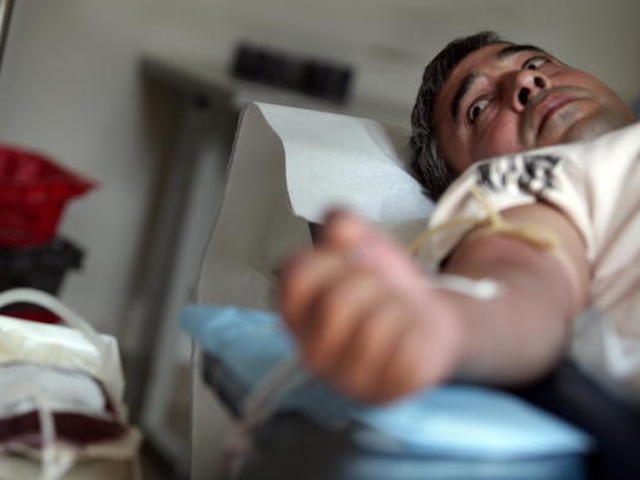Brazilian officials have reported two cases of Zika infections through blood transfusions in Campinas, 62 miles northwest of São Paulo.
Campinos Health Secretary Cármino de Souza said the government were not previously able to confirm the infections “because they were initially suspected of being infected with dengue, another mosquito-borne virus.” The two patients received the blood transfusions in early 2015. From The Wall Street Journal:
The first case involved a liver-transplant recipient who contracted Zika through blood donated in March 2015. The second was a gunshot victim who tested positive for Zika after receiving multiple blood transfusions; he later died of his wounds, not the Zika virus, Campinas health officials said.
The officials confirmed Zika in the donor’s blood on January 28, 2016.
Another donor from May tested positive for Zika, but “the recipient of the contaminated blood has not developed symptoms of the virus.”
“The capacity of Zika to spread through blood transfusions needs to be evaluated, as well as the blood protection measures that should be adopted based on the new findings,” stated the Brazil Health Ministry.
The news comes only hours after the U.S. Red Cross urged people not to donate blood “if they traveled to Latin America or the Caribbean in the past 28 days.” They advised people who have donated blood to alert the organization if they develop Zika symptoms.
“The American Red Cross is dedicated to providing the safest, most reliable blood products possible to patients in need,” stated Susan Stramer, vice president of scientific affairs. “The Red Cross continues to use safety measures to protect the blood supply from Zika and other mosquito-borne viruses.”
The American Association of Blood Banks also recommended people should not donate blood for 28 days.
Aedes aegypti mosquitos carry the disease. While primarily found in Africa, all but two nations on the Western Hemisphere boast significant populations (Chile and Canada are the exceptions). They also carry Dengue, yellow fever, and Chikungunya. Doctors found the disease in one infant during an autopsy, and numerous mothers reported symptoms.
Last week, spokeswoman Tara Goodin told the media the Food and Drug Administration and other agencies are working “to rapidly implement appropriate donor deferral measures for travelers who have visited affected regions in order to protect the blood supply in the United States.”
She did not specify when the FDA would take action.
Canadian officials also asked anyone who traveled “outside Canada, the continental U.S. and Europe” not to donate blood for 21 days. The countdown begins on the day the person returns to Canada.
“We’ve now determined that a 21-day deferral period of time for donors to refrain from donating blood after they’ve returned from travel to a Zika-risk area,” explained Dr. Dana Devine, the chief medical and scientific officer of Canadian Blood Services.

COMMENTS
Please let us know if you're having issues with commenting.